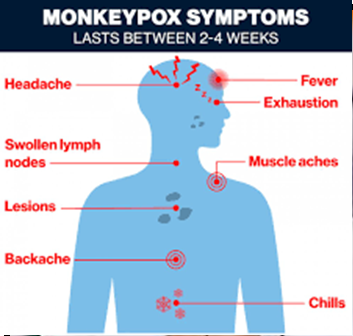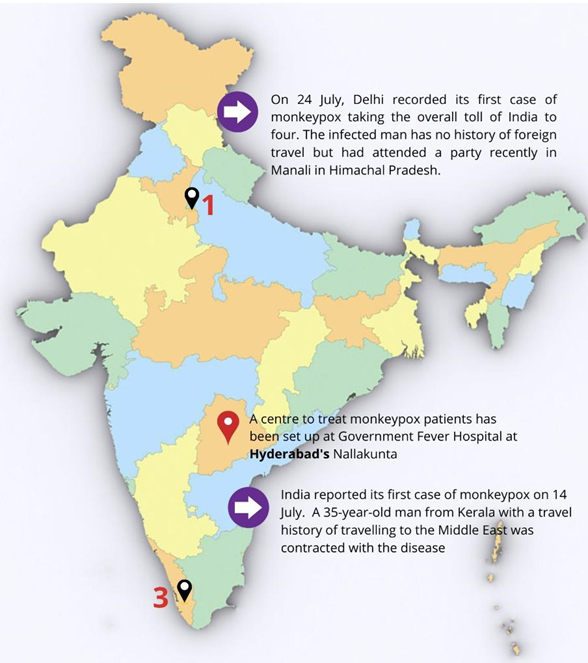AFRICA MPOX RESURGENCE, WITH DEADLIER AND MORE TRANSMISSIBLE STRAIN, FUELS ALARM
Why in the news?
- A new strain called the Clade Ib subclade of mpox, previously known as monkeypox, has been identified in the Democratic Republic of Congo (DRC) and is now spreading to several neighboring countries.
- The strain causes skin rashes across the whole body, unlike other strains where lesions and rashes are usually limited to the mouth, face, and genitals.
Surge in cases and deaths
- As of August 3, the Africa CDC registered 14,479 confirmed and suspected cases of the Clade Ib strain in DRC, with 455 deaths, representing a mortality rate of around 3%.
- Researchers in DRC say the mortality rate from this strain can be as high as 10% among children.
- The Congolese government acknowledged an “exponential increase” in cases last month.
- The disease has been seen in displacement camps around Goma in North Kivu, where extreme population density makes the situation very critical.
- The risks of further spread are high due to the enormous population movements in the conflict-ridden region, which borders several countries.
Spread to neighboring countries
- The Clade Ib strain has already jumped national borders, with cases reported in Uganda, Burundi, Rwanda, and Kenya in the last two weeks.
- Burundi has reported 127 cases, while authorities in the four countries have confirmed mpox cases without specifying the strain.
- The East African Community (EAC) has urged governments to educate citizens on protecting themselves and preventing disease spread.
- WHO’s technical lead for mpox, Rosamund Lewis, said it was the first time these four countries east of DRC had reported mpox cases, indicating an extension of the outbreak raging in DRC and Central Africa.
WHO’s response
- The WHO said it was considering convening an expert committee to advise on declaring an international emergency, as it did during the 2022 global mpox outbreak.
- WHO chief Ghebreyesus warned in early July that mpox remains a global health threat.
- Negotiations between the WHO and affected countries are underway to authorize the use of licensed vaccines for mpox.





